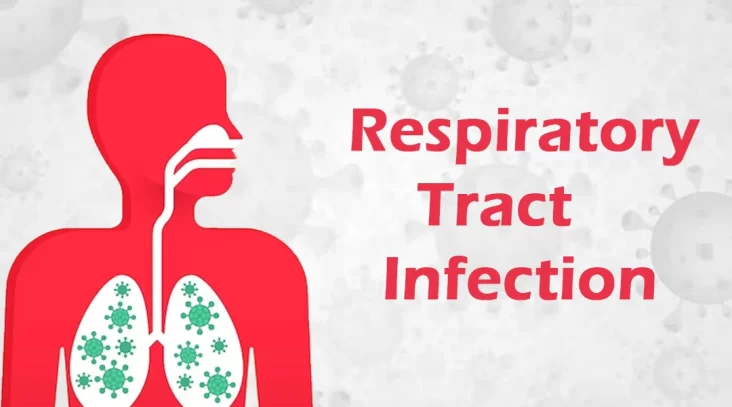A respiratory tract infection (RTI) refers to an infection that affects any part of the respiratory system, which includes the nose, throat, airways, and lungs. RTIs can range from mild illnesses, such as the common cold, to more severe infections like pneumonia. They are often caused by viruses, bacteria, or, in some cases, fungi.
Here are some common types of respiratory tract infections
- Common Cold: A viral infection, the common cold mostly affects the nose and throat. It is usually caused by rhinoviruses and can lead to symptoms like a runny or stuffy nose, sneezing, sore throat, coughing, and mild fatigue.
- Influenza (Flu): Influenza is a viral infection caused by influenza viruses. It can cause symptoms similar to the common cold but is often more severe. Symptoms may include fever, chills, muscle aches, fatigue, cough, and congestion.
- Bronchitis: Bronchitis is the inflammation of the bronchial tubes, which carry air to the lungs. It can be caused by viruses or bacteria. Symptoms include coughing, often with mucus production, chest discomfort, and shortness of breath.
- Pneumonia: An illness called pneumonia causes the lungs’ air sacs to become inflamed. Numerous pathogens, including bacteria, viruses, and fungi, are capable of causing it. Symptoms may include high fever, chills, cough with phlegm, chest pain, and difficulty breathing.
- Sinusitis: Sinusitis is an infection of the sinuses, which are air-filled cavities located in the facial bones around the nose. It is usually caused by viruses, bacteria, or allergies. Symptoms include facial pain, congestion, headache, and nasal discharge.
- Pharyngitis (Sore Throat): Pharyngitis is an inflammation of the throat, often caused by viral infections like the common cold or the flu. It can cause a sore throat, difficulty swallowing, and sometimes a fever.
- Croup: Croup is a viral infection that primarily affects young children. It causes inflammation of the upper airways, leading to a barking cough and a characteristic “seal-like” sound when breathing.
- Respiratory Syncytial Virus (RSV) Infection: RSV is a common virus that can cause respiratory infections, especially in infants and young children. It can lead to symptoms like coughing, wheezing, and difficulty breathing.
- Tuberculosis (TB): Mycobacterium tuberculosis is the bacterium that causes the disease tuberculosis. Although it mostly affects the lungs, it can extend to other body parts. Symptoms may include persistent cough, chest pain, fatigue, and weight loss.
Prevention of respiratory tract infections often involves practising good hygiene, such as washing hands regularly, covering the mouth and nose when sneezing or coughing, and avoiding close contact with sick individuals. Vaccines, such as the flu vaccine and vaccines against certain types of pneumonia are also available to reduce the risk of respiratory infections. If you suspect you have a respiratory tract infection, especially if symptoms are severe or persistent, it’s important to consult a healthcare professional for proper diagnosis and treatment.

